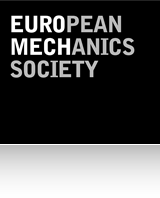631 – Control of skin friction and convective heat transfer in wall-bounded flows
Chairperson:
Dr. Stefano Discetti
Aerospace Engineering Research Group
Universidad Carlos III de Madrid
Avda. Universidad 30,
28911, Leganés
Spain
Email: sdiscett@ing.uc3m.es
Co-chairperson
Marios Kotsonis
Delft University of Technology
The Netherlands
Andrea Ianiro
Universidad Carlos III de Madrid
Spain
Woutijn Baars
Delft University of Technology
The Netherlands
Active control of wall-bounded flows is an everlasting topic of research in the fluid dynamics community. Skin friction drag reduction and convective heat transfer control are of paramount importance in an overwhelming amount of applications, involving transportation means, renewable energy exploitation, industrial processes, turbomachinery for power generation and propulsion, etc.
Fast-paced advancement of experimental hardware and computational power have fostered, on one hand, the establishment of efficient techniques for sensing and actuation, and on the other hand, the development of techniques to efficiently distil the information available from sensors and select the most effective control strategy.
This colloquium is expected to create fertile soil for discussion, exchange of ideas and networking between leading European and international scientists in flow control, specifically in the areas of wall-bounded flows. The structure of the colloquium will target specifically the identification of open- and closed-loop control laws, sensing strategies and actuation solutions in applications of drag reduction and convective heat transfer control. Passive control techniques are also of interest as a benchmark scenario for the development of active flow control techniques.
Numerical, theoretical and experimental contributions in laminar, transitional and turbulent flows will be welcomed, as well as surveys and comparative studies of competing control strategies.
